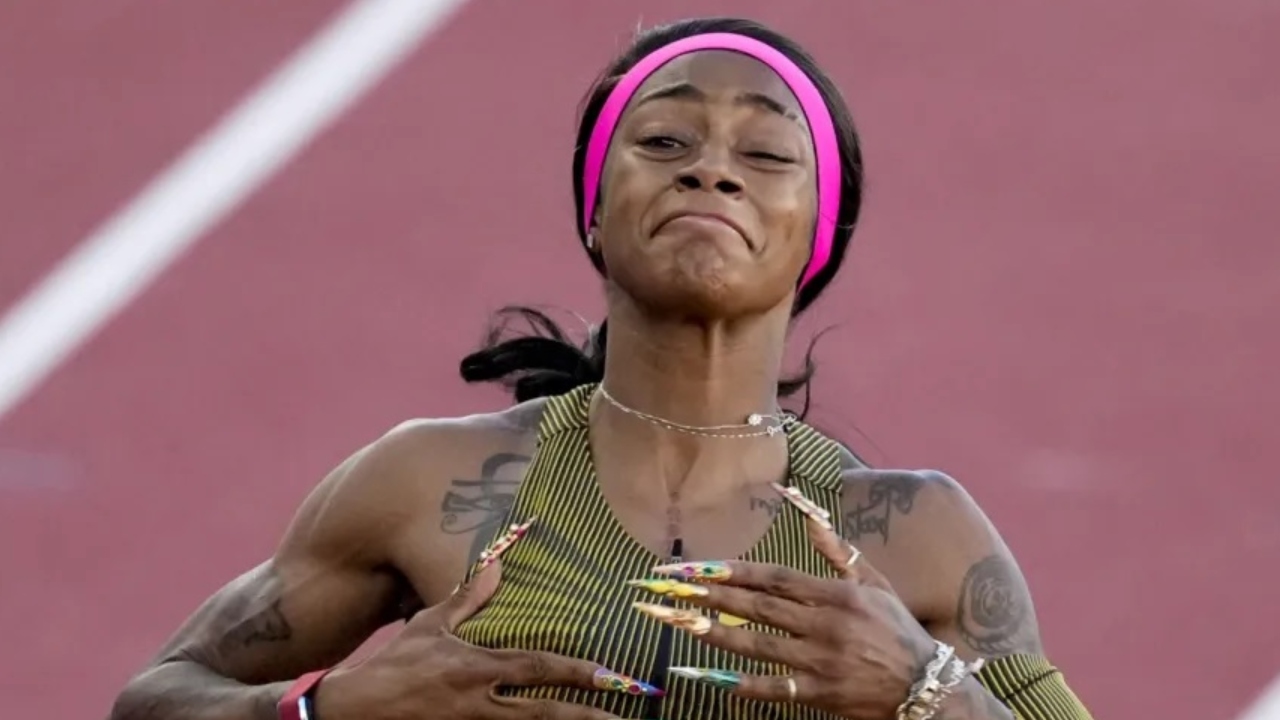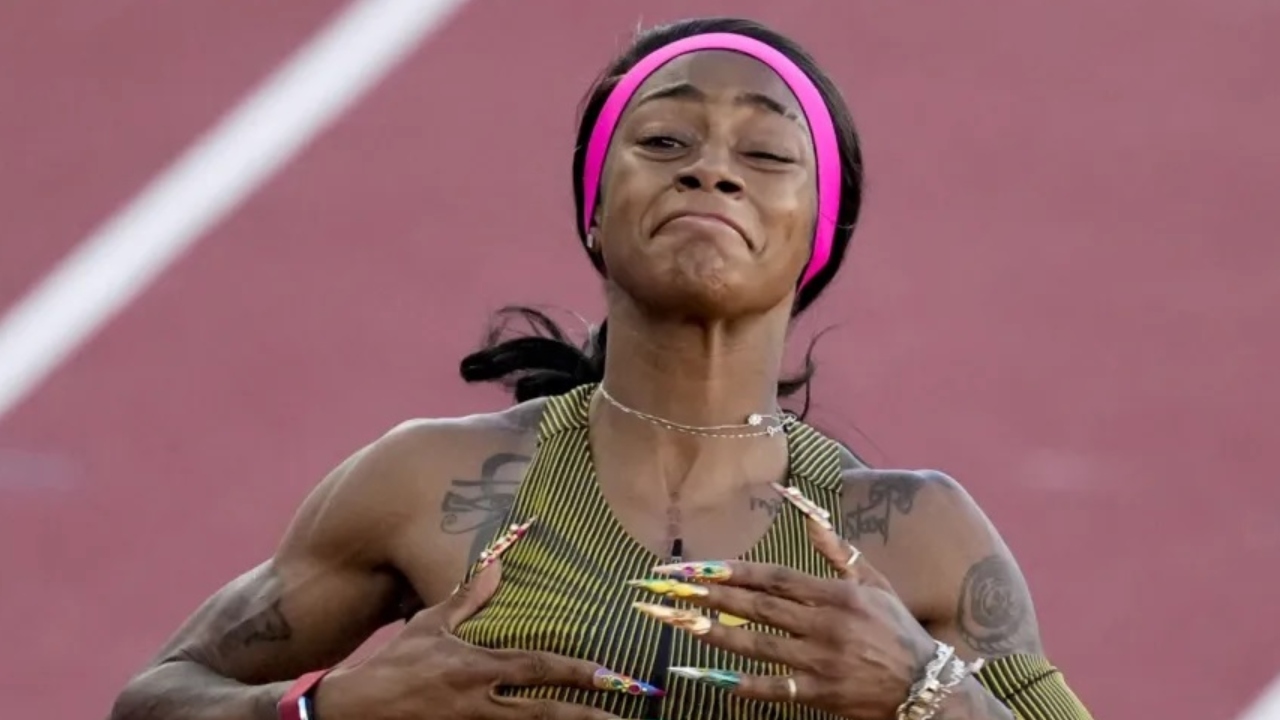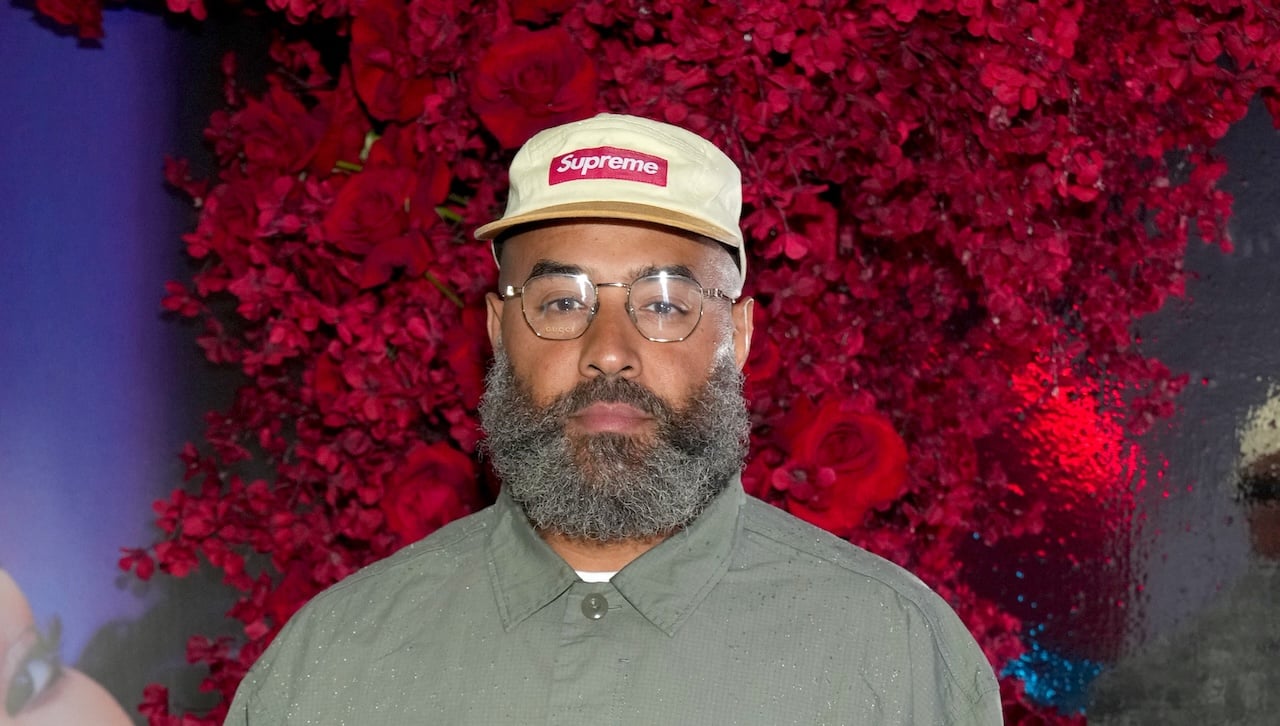
Sha’Carri Richardson set the tone for her own comeback story a year ago when she won the 100-meter U.S. title, then the world championship, and brashly proclaimed: “I’m not back, I’m better.”
Now, with a trip to her first Olympics approaching, come new questions: Is she still better than a field of the fastest women on the planet? And can she handle the pressure that is unique to the Olympics?
The 24-year-old favorite in the Olympic 100 meters has been open and honest about her quest to become a more appreciative, mindful version of the person whose positive marijuana test at the 2021 U.S. Olympic trials was her unfortunate introduction to a world that knew little about her.
But in the three years that have encompassed both her stunning fall and her inspiring comeback, she has given few details of what happened. She has dropped clues about the death of her biological mother and the bout with depression following that tragedy.
All of this mystery, turmoil and, ultimately, success have made Richardson larger than life and left her enthusiastic and growing fan base wanting more. Some on social media are keenly into what hairstyle and fingernails she will show off when she runs.
It has also made her more than a mere celebrity sprinter. She is a young, famous, Black woman whose suspension evoked arguments about race, drugs, anti-doping rules and an Olympic ecosphere that is still largely run (and reported on) by older, white men.
“It’s not a goal of mine to be known,” Richardson said. “But I definitely don’t want to be known for one thing. No one does. It’s important for me to be the best person I can be in all that matters to me, like family, community and the work that I do.”
How Richardson communicates with the media
That insight came out of the two questions Richardson agreed to answer from The Associated Press as part of her sponsorship with Powerade. Many of her interviews over the past year or more have come with those sort of brand-placement trade-offs attached.
She has offered other clues on social media, including posts in which she has unflinchingly addressed her mental-health issues, mentioning her thoughts about suicide during her teen years while also offering hope to others.
At worlds last year, there were remnants of the fracture between Richardson and the media. The behind-the-scenes Netflix series “SPRINT” showed clips of testy exchanges between her and reporters.
Reflecting on the media’s role in telling her story, she said in the documentary: “I feel like in the media, every move I make, there’s a lot of noise about it. You get what you get and you get what you give. OK, so that’s just me.”
This year, her occasional in-person exchanges with reporters – most notably at the U.S. Olympic trials, where she won her second straight national title in June – have been less tense. Her comments centered on different variations of the same theme: personal growth, accountability, family.
“I would say in the past few years, I’ve grown to have a better understanding of myself,” Richardson said. “I have a deeper respect and appreciation for the role I have in the sport, as well as my responsibility to the people who believe and support me.″
Richardson’s grandmother has guided her life
The closest Richardson came to discussing the pain she endured as a child came in a friendly interview this summer with Vogue online, one she gave with the caveat that she not discuss her biological mother or the drug test.
“Everything I am, it’s because of that strong, wise Black woman,” she said of her grandmother, Betty Harp, who raised her and can usually be found sitting trackside for Richardson’s biggest races. “Everything. I mean, I’ve been blessed, because I’ve had other people in my life who have helped me along. But the foundation, that’s her.”
Recommended Stories
Richardson has plenty of time to develop as an athlete and a public figure. Some sprinters don’t hit their peak until their late 20s.
The cruel fact is that for the public to care, long-term, about any athlete in a sport that does not generate headlines in non-Olympic years, then winning a gold medal is the main way to build a legacy.
The favorite
All signs point toward Richardson getting that win in the Olympic 100-meter final, set for Aug. 3 at the Stade de France.
She won the Olympic trials in 10.71 seconds – the best time in the world this year. One of her main challengers, Shericka Jackson of Jamaica, pulled up lame in a tune-up race earlier this month, bringing her fitness for the Olympics into question.
Jamaica’s Shelly-Ann Fraser-Pryce has four more Olympics and eight more Olympic medals than Richardson. Experience matters on the sport’s biggest stage, but is it enough to outclass Richardson’s unmatched speed in 2024?
“As an athlete, when you know you’ve got the talent and all eyes are on you, it’s tough,” sprint great Michael Johnson said. “And once you actually prove to yourself, and prove to the world that, ‘Hey, I can do this,’ it becomes a huge relief” that might free her up for further success.
Richardson’s comeback has made her a star
The gold medal is still out there to be captured, but in some ways, Richardson already has won.
Her face was plastered all over Eugene, Oregon, during the Olympic trials, courtesy of her Nike shoe deal. She has been a nonstop presence in NBC’s Olympic promotions.
Richardson is not the Simone Biles of these Olympics, but once gymnastics is over and the spotlight heads to the track, there will be no more compelling character.
“The entire world was involved and got caught up in the magic of who Sha’Carri is,” said Olympic gold medalist Sanya Richards-Ross, who covers track for NBC. “And we’ve had a wonderful opportunity to watch her deal with all of that, and to mature and grow. It’s been beautiful to see how she’s now standing in what it means to be the face of the sprints. It comes with a lot.”
Sha’Carri is a work in progress
Great as Richardson was in the 100, there was a twinge of disappointment after she finished fourth in the 200 meters — an event where she captured the bronze medal at worlds last year. That means she won’t have a chance to win the hallowed sprint double, the way Noah Lyles will on the men’s side.
But if there was a single moment that showed Richardson for everything she is as an athlete, it might have come in her very first race that week, a preliminary heat of the 100. She stumbled out of the starting block, nearly wobbled out of her lane and had to make up ground to win.
In brief comments after the race, she was the first to concede that she’s far from a finished product – still trying to get better every day under the demanding eye of her coach, Dennis Mitchell.
Only after she crossed the line did everyone realize Richardson had run that 100 in 10.88 seconds with her right shoelace untied.
So, there she was: Imperfect, a work in progress, a mysterious racer still charting her course while owning the spotlight because, in the end, she was still faster than everyone else.





